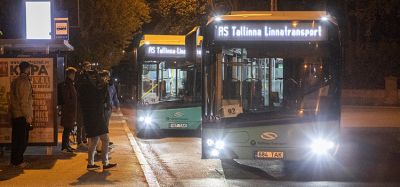UN publishes framework for autonomous vehicles with safety at core
- Like
- Digg
- Del
- Tumblr
- VKontakte
- Buffer
- Love This
- Odnoklassniki
- Meneame
- Blogger
- Amazon
- Yahoo Mail
- Gmail
- AOL
- Newsvine
- HackerNews
- Evernote
- MySpace
- Mail.ru
- Viadeo
- Line
- Comments
- Yummly
- SMS
- Viber
- Telegram
- Subscribe
- Skype
- Facebook Messenger
- Kakao
- LiveJournal
- Yammer
- Edgar
- Fintel
- Mix
- Instapaper
- Copy Link
Posted: 6 September 2019 | Intelligent Transport | No comments yet
The framework from the United Nations (UN) highlights the need to prioritise public safety when implementing autonomous vehicles in society.


Autonomous vehicles are expected to bring benefits to society by enhancing mobility and increasing safety. These benefits are reliant on that fact that autonomous technologies require global expertise and international cooperation.
In the hope to accomplish maximum safety, experts from the World Forum for Harmonization of Vehicle Regulations under the leadership of China, the European Union, Japan and the United States, have developed a framework document to guide the future work of the United Nations on this strategic area for the future of mobility.
The Framework will apply to automated/autonomous vehicles equipped with systems that can drive under the driver’s partial supervision or with zero supervision – what is generally referred to as automation Levels 3 to 5.
The Framework outlines that safety of automated/autonomous vehicles refers to the vehicles not causing any-tolerable risk. When in practice, the vehicles will not cause traffic incidents that result in injury or death when preventable.
Based on this principle, all automated driving functionalities must ensure road users’ safety and compliance with road traffic regulations.
The Framework lists a series of issues to be addressed by the World Forum as a matter of priority:
- System safety
- Failsafe response
- Human machine interface
- Object Event Detection and Response (OEDR)
- Conditions under which the automated system will operate
- Validation for system safety
- Cyber-security
- Software updates
- Data storage and Event data recorder (EDR).
The framework emphasises that the technical provisions, guidance resolutions and evaluation criteria for automated vehicles developed through the World Forum will be performance based when possible, technology neutral, and based on state-of-the-art technology while avoiding restrictions on future innovation.
Draft proposals on all of these topics will be prepared by four new technical groups, led by experts from Asia, Europe and North-America, to ensure the widest possible technical and geographical representation. These will inform the work of the World Forum’s Working Party on Automated/Autonomous and Connected Vehicles (GRVA) in the future.
The four groups will investigate:
- Functional requirements for automated vehicles
- Validation of the driving capability of automated vehicles
- Cybersecurity and software updates
- Data Storage Systems for Automated Driving and Event Data Recorders.
Initial outcomes from these groups will be discussed, including proposals on cyber-security and the type approval of Level 3 systems that can be used on highways.
Related topics
Connected & Autonomous Vehicles, Cyber-Security, Mobility Services, Passenger Experience, Security & Crime
Related modes
Autonomous Shuttle, Autonomous vehicles
Related organisations
World Forum for Harmonization of Vehicle Regulations








